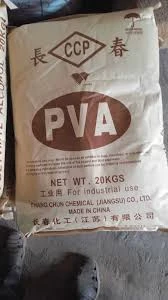The Importance of Cellulose Manufacturers in Today's Economy
In recent years, the demand for sustainable and environmentally-friendly materials has surged, and cellulose has emerged as a key player in this transformative trend. Cellulose, a natural polymer found in the cell walls of plants, has properties that make it an ideal candidate for a multitude of applications ranging from textiles to food additives. As such, cellulose manufacturers play a vital role in meeting this increasing demand while promoting sustainability and innovation across various sectors.
The Role of Cellulose in Industries
Cellulose is the most abundant organic polymer on Earth and is primarily sourced from wood, cotton, and other plant materials. Its versatility allows it to be utilized in a variety of industries, including textiles, pharmaceuticals, food and beverages, and packaging. In the textile industry, cellulose fibers such as rayon and lyocell are prized for their breathability and softness, making them a popular choice for clothing and home textiles. In the pharmaceutical sector, cellulose serves as an excipient in tablet formulations, providing stability and enhancing the drug release process.
Moreover, cellulose is also essential in the food industry, where it acts as a thickening agent, stabilizer, and source of dietary fiber. It ensures products maintain their desired texture while offering health benefits, such as aiding digestion. The packaging industry has also embraced cellulose, given its biodegradable and recyclable nature, which aligns with global efforts to reduce plastic waste.
Sustainability and Environmental Impact
One of the most significant advantages of cellulose is its biodegradability. As concerns about plastic pollution and environmental degradation rise, cellulose stands out as a sustainable alternative. Unlike synthetic materials, which can take centuries to decompose, cellulose can break down within months, reducing landfill waste and pollution. This characteristic makes it particularly valuable in the development of eco-friendly packaging solutions, which are increasingly favored by consumers and businesses alike.
Additionally, cellulose manufacturers are adopting sustainable practices in their production processes. Many are investing in advanced technologies that minimize water and energy usage while maximizing output. By sourcing raw materials from sustainably managed forests or agricultural practices, these manufacturers ensure that they are not only meeting the demand for cellulose but doing so in a way that preserves natural resources and habitats.
cellulose manufacturers

Technological Innovation in Cellulose Production
The cellulose industry is also witnessing significant advancements in technology. Innovations such as nanocellulose and cellulose-based composites are being developed to enhance the properties of products across various applications. Nanocellulose, for instance, exhibits extraordinary strength and lightweight properties, making it an attractive material for industries such as automotive and construction. These advancements not only demonstrate the potential of cellulose but also foster new markets and opportunities for growth within this sector.
Furthermore, cellulose manufacturers are exploring new extraction methods that improve efficiency and reduce waste. Techniques such as enzymatic hydrolysis and ionic liquid dissolution are gaining traction, allowing for a more refined and controlled extraction process. Such innovations can lead to higher purity cellulose and the ability to utilize a wider range of raw materials, contributing to a more circular economy.
Future Outlook for Cellulose Manufacturers
As consumers become more eco-conscious and regulatory pressures for sustainable practices intensify, the future for cellulose manufacturers looks promising. The global market for cellulose is expected to expand significantly, driven by the increasing adoption of biodegradable materials and the ongoing research into cellulose-based applications.
However, challenges remain. The cellulose supply chain can be affected by factors such as climate change, which impacts raw material availability. To counter these challenges, manufacturers must prioritize sustainable sourcing and invest in research and development to ensure the long-term viability of cellulose production.
Conclusion
In conclusion, cellulose manufacturers are pivotal in the movement toward a more sustainable and innovative economy. Their ability to produce eco-friendly and versatile materials not only caters to diverse industrial needs but also aids in addressing pressing environmental issues. As technology continues to evolve and the demand for sustainable products grows, cellulose manufacturers will undoubtedly play a crucial role in shaping a greener future. Embracing sustainability in production and innovation will be key to their success in an ever-evolving marketplace.
-
Rdp Powder: Key Considerations for Wholesalers in the Building Materials IndustryNewsJul.08,2025
-
Key Considerations for Wholesalers: Navigating the World of Hpmc - Based ProductsNewsJul.08,2025
-
Hpmc Detergent: Key Considerations for WholesalersNewsJul.08,2025
-
Key Considerations for Wholesalers: China Hpmc For Tile Adhesive, Coating Additives, Concrete Additives, and MoreNewsJul.08,2025
-
Crucial Considerations for Wholesalers: Navigating the World of Construction MaterialsNewsJul.08,2025
-
Key Considerations for Wholesalers Sourcing Additive For Cement, Additive For Concrete, Additive For Putty from Additive Manufacturer Shijiazhuang Gaocheng District Yongfeng Cellulose Co., Ltd.NewsJul.08,2025




